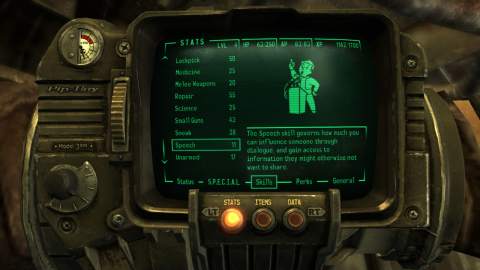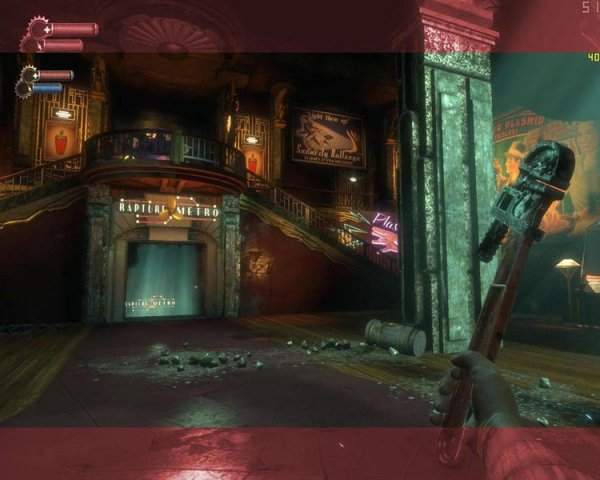When I first started writing about games in the days of yore, I had no idea that major screenwriters were penning scripts for them. I came from the era of playing arcade games at Chuckie Cheese, when a title like Pac Man or Centipede didn’t need a script.
But now with the complexity of modern games, even major screenwriters like John Milius (Apocalypse Now), and Robert Towne (Chinatown), have written scripts for the gaming world.

Some years back I spoke to Hal Barwood about writing for games, and Hal, along with his long time friend and partner Matthew Robbins, wrote some of my favorite under-rated movies including Sugarland Express, Corvette Summer, and Dragonslayer.
Robbins is currently Guillermo Del Toro’s screenwriter, with his most recent credit being this summer’s Don’t Be Afraid of the Dark. (Not to mention Barwood and Robbins also did a major re-write on Close Encounters for their old friend Steven Spielberg).
In 1981, Barwood got his first Apple, and he started teaching himself how to build games that could work on home systems, like the Atari 2600, which had just become the hottest thing since sliced bread. But it wasn’t until 1990 that he dove into the gaming industry headfirst when his old comrade from USC, George Lucas, called him up for advice.
Lucas wanted to start a game company, Lucas Arts, and besides needing someone to help him and make sure Lucas Arts made the right first steps, he also offered Barwood a gig writing an Indiana Jones adventure game.
Lucas apparently had an un-produced Indiana Jones sequel script laying around he felt could make a good basis for a game.
The script turned out to be crap – “No wonder they didn’t want to make it into a movie,” Barwood jokes – and he decided to come up with a whole new idea. He then wrote the game Indiana Jones and the Fate of Atlantis, and he’s written many games for Lucas since.

Barwood didn’t find the transition from screenwriter to video games too difficult, but it would have been much harder if he didn’t have any previous experience with them. As Barwood explains, to write for a game, it’s important to understand “how the mechanics of the game works, and how the demands of playing a game alter the proportions of storytelling.”
Lee Sheldon is another Hollywood writer who worked in television for many years (including Star Trek: The Next Generation) before venturing into the gaming world.
“I’m certainly more challenged doing video games than I was in my television writing,” he says. “I was getting awfully tired of car and spaceship chases. It was nice to have some new problems to work on, even though there were still car and spaceship chases!”
And video games could certainly use a few good writers. As Barwood readily admits, there is often terrible writing in video games. “I think everybody says that, I’m not the only one who’s noticed,” he says with a laugh. “[Still], I think it’s gotten a lot better over the years.”
“There’s a number of reasons there’s terrible writing in video games,” says Sheldon. “One, they never budget for the writer. They try to find somebody down the hall that’s doing level design, and then they give him a writing job. The (companies) haven’t felt there’s much need for writers. Some feel writing is something anybody can do because it doesn’t require manual dexterity. So as a result you get a lot of really bad writing and they can’t tell, or they can tell and they’ll say, ‘Well, it’s just a video game, they get the writing they deserve!'”

The average film script runs 120 pages, or one page for every minute of screen time, and can have a thousand lines of dialogue. But with the amount of exposition, dialogue and direction required, a video game script can be 3-400 pages long with 8-9,000 lines of dialogue (not to mention a game can go twenty hours long, where movies average two).
“Most games are not complicated at any given moment, but they usually have quite a lot of material you go through because they last so long,” Barwood continues. “The ingredients you normally use in one set of proportions in a movie, you use in a totally different set of proportions in a game.”
Good writing is often taken for granted in games, yet a game can fail without it. Video games include a lot of verbal mazes where you’re trying to guide the player through, and if you don’t understand a story point in a game, “It’s very likely you won’t be able to know what to do next and advance the game any further,” Barwood says.
”If you don’t give the player good sign posts, they’ll either get frustrated, or bored, or both, and they won’t be able to figure out what’s going on.”






